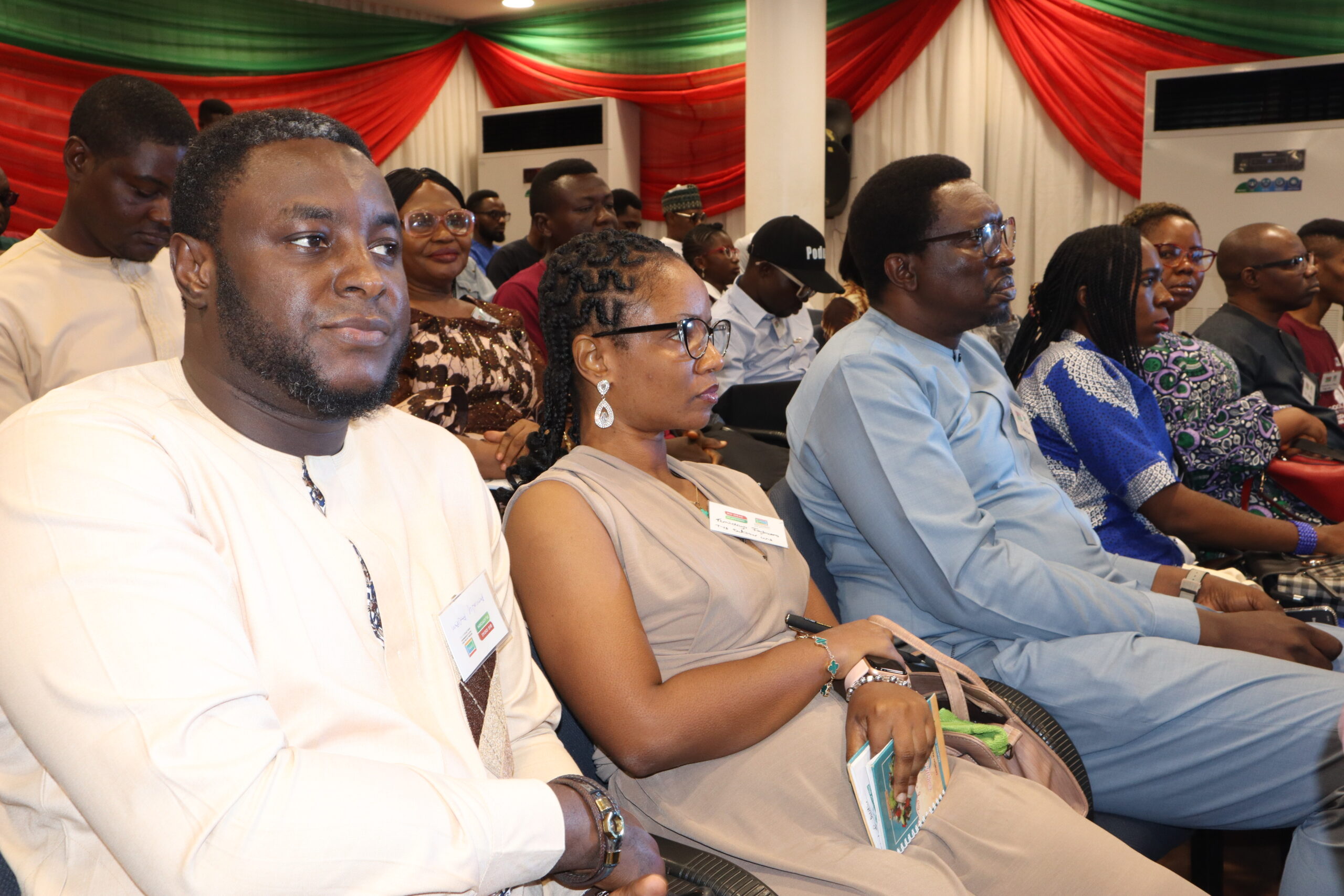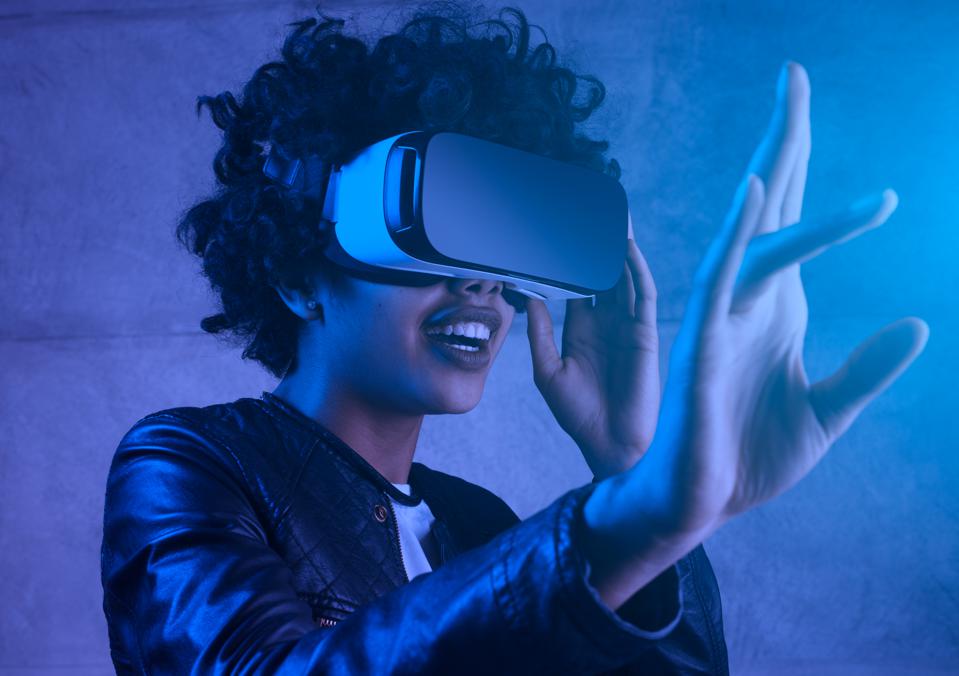Big Ideas Platform 2024: Recap of the Bold Ideas for Africa's Renaissance
[Abuja – May 25, 2024] – The School of Politics, Policy, and Governance (SPPG), in partnership with the Yar’Adua Foundation and MacArthur Foundation, hosted the Big Ideas Platform 2024 on Saturday, May 25, at the Shehu Musa Yar’Adua Centre in Abuja. The event, themed ‘Information Technology and Behavior Change’ centred on leveraging technology and socio-behavioural programming as ‘game changers’ for Africa's transformation.
The event kicked off with an opening remark by the CEO of SPPG, Alero Ayida-Otobo “Technology is truly a game changer, playing a pivotal role in addressing significant developmental challenges across sectors in Africa: Communication, Commerce, Medicine, Education, Security, Food Production, and so much more." The platform spotlighted four subthemes - blockchain technology, environmental awareness, virtual reality, and artificial intelligence (AI) - and had four of Africa’s bright minds share their big ideas.
Four Big Ideas Curators
Oluseun Badejo, project implementation specialist and team lead of the SPPG Blockchain Project shared his big idea on deploying blockchain technology deployment in the educational sector to address critical issues like certificate forgery, data alteration, and ensure that academic records are secure, accessible, authentic, and verifiable by employers and academic institutions without the hassle of running back to your alma mater each time your academic records are requested, scratch the traditional filing of academic records which takes time to find and has resulted to people losing academic and professional opportunities. This technology could be revolutionary in addressing the rampant issue of fake transcripts in Nigeria and across Africa. This will offer a secure and cost-effective solution for verifying academic credentials.
Speaking in a session on waste management tools, Sian Cuffy Young, an award-winning waste management consultant, educator and social entrepreneur, and founder of Siel (Sigh-el) Environmental, a highly successful social enterprise that revolutionises waste perception and practices for individuals and businesses, shared her big idea on how to create environmental awareness in children, educate them so they can make informed environmental choices. She emphasised that effective environmental change begins with an individual commitment to sanitise our environment as a personal responsibility. Her big idea cites the ‘innovative use of educational books and animations targeted at younger generations to underscore the need for teaching practical waste management skills early’. This focus on proactive methods over interventionist awareness campaigns will drive lasting environmental change.
Sabiqah Bello, representing Ahmad Salkida, the CEO of HumanAngle, a niche media platform using virtual reality to humanise Africa’s conflict, humanitarian, and development issues to evoke empathy, talked about their groundbreaking exploration of virtual reality (VR) in journalism. Offering a glimpse into the future of digital storytelling, the session illustrated VR's ability to immerse viewers in the lived experiences of others, enhancing empathy and understanding. For journalists, VR technology represents a powerful tool for conveying emotional and impactful narratives, potentially transforming the framing and dissemination of news stories.
Toyosi Akerele-Ogunsiji, Technology Education Professional, and Founder of Rise Networks and Passnonwnow, shared her big idea highlighting the critical role of artificial intelligence (AI) for information verification in today’s data-heavy world. Akerele emphasised AI's capacity to identify false reports, a key factor in combating misinformation. She also stressed the importance of integrating AI courses into educational curricula to prepare Africa’s growing population of AI users. By investing in AI, Africa can enhance its global competitiveness, ensuring that students and professionals are equipped with the necessary skills to utilise AI effectively.
Here's a critical commentary by Toyosi Akerele-Ogunsiji on AI
The VillageSquare Conversation
But beyond these big ideas, there was a question of how to scale them to transform Africa and build a better future. Dr Amina Salihu, the Deputy Director Africa Office of the MacArthur Foundation, pioneer Dean of SPPG and the lead of SPPG’s thought-leadership, led this conversation during The VillageSquare Conversation. Ajibola Amzat, a Nigerian investigative journalist, pointed out that technology can be useful but can be used as a weapon the other way round. Prof Remi Sonaiya, Nigerian politician and educationalist, and one-time presidential candidate, cited that the real challenges we face involve the ethical use of technology. She warned that technology, like a knife, can be a tool for good or harm and that the focus should be on the ethical dimension, character, competence, and capacity. However, Frank Nweke Jnr, a Nigerian Politician, Entrepreneur, Teacher and Social Innovator, and two-time Federal Minister cautioned that Africa is not represented in discussions on the global agenda regarding artificial intelligence. He added that the world will continue to have needs, and those with artificial intelligence expertise will be crucial in meeting them. On the other hand, Dr Obiageli ‘Oby’ Ezekwesili, Founder and Chair of the #FixPolitics, shared her concerns that it is the rate of the dearth of ideas that distinguishes one country from the other, one continent from the other, and reaffirmed SPPG’s determination to ensure that these big ideas will give resultant transformation in our continent.
The 2024 Big Ideas Platform proved to be an enlightening experience that offered attendees and uptakers a wealth of knowledge on the transformative potential of technology in addressing some of the continent's most pressing issues.
As the event concluded, it was clear that the big ideas, insights, and innovations presented hold significant promise for driving positive change in Africa. The 2024 Big Ideas Platform successfully highlighted the critical intersection of technology and development, leaving attendees eager to take action for social impact across Nigeria and the broader African continent.
Join us, let's co-create the Africa we need.
About the Big Ideas Platform: The Big Ideas Platform is a thought leadership initiative developed by the School of Politics, Policy, and Governance. With a focus on empowering African innovators and amplifying their voices, this platform aims to promote dialogue, collaboration, and action to address the pressing challenges faced by African communities. By highlighting transformative ideas, the Big Ideas Platform strives to facilitate inclusive growth, development, and the realization of the African Renaissance.
The Use of Virtual Reality In Addressing Challenges - #BigIdeasPlatform2024isHere
With the rapid technological advancements in recent decades, Virtual Reality (VR) has been increasingly adopted as a transformative technology with the potential to address various challenges across diverse fields. Virtual reality (VR) can be defined as an environment-building technology that enables participants to immerse themselves in their surroundings and interact with the elements. However, a broader definition of VR also includes non-immersive and semi-immersive virtual environments, such as desktop VR. This technology has gained popularity, with the market size projected to reach $62.1 billion by 2027. Previously, its use was mainly associated with entertainment and gaming, but the technology has also seen immense success in health care for training in complex procedures such as surgery, in the mining industry to simulate emergency situations, and in the automotive industry to improve driving and reduce accidents. The use of VR for training has seen immense growth because it provides an interactive learning environment that is both engaging and fun. For most people, it is something they do not use at home, so the experience is a major boon for the engagement of a workforce that would have previously experienced many different, conventional training programs.
One significant application of VR is in the fields of healthcare and education where the technology has transformed learning methods by providing immersive and interactive experiences. In the healthcare field, surgical simulators are used to enable trainee surgeons to practice procedures in a realistic virtual environment, reducing the learning curve and enhancing patient safety. VR experiences have been utilized to alleviate pain and discomfort during medical procedures, enhancing patient comfort and reducing reliance on traditional analgesics. In the field of education, VR simulators have been used to explore pivotal moments in history which enhances student engagement and retention. VR-based language learning applications also facilitate language acquisition through immersive cultural experiences and interactive exercises.
These diverse virtual training offer many advantages over traditional learning, which, even with engaging presenters, tends to rely on PowerPoint presentations that can be unappealing and reduce engagement. With a training program enhanced by VR, there is less training material required and the trainer’s time is reduced, making VR training convenient and easy to provide multiple times. Simulations in VR allow for mistakes to be made without experiencing the consequences, providing opportunities to try different ways of working and explore improvements, especially in activities that relate to emergency situations. For sequential activities, the repetition of the tasks in VR provides a safe environment to practice, increasing information retention and instilling confidence in the trainee to carry out the task in the real world. VR training is proving to be very cost-effective, as it brings the site to the trainee, eliminating the cost challenges that come with travel.
While the benefits and advantages of deploying this technology in enhancing training programs within different fields, there are certain ethical concerns that need to be addressed to fully maximise its effectiveness. The ethical concerns associated with VR technology are multi-faceted. One concern is addiction, where users may become excessively absorbed in virtual environments, which is detrimental to mental health. There is also a fear that virtual crime could escalate and become more prevalent in society, leading to confusion about what constitutes a real-world crime versus a virtual one. Another concern is the use of VR technology in various industries, such as military and defence, healthcare, and entertainment. The ethical implications of using VR in these industries are varied, ranging from the potential for creating more realistic and practical training scenarios to the possibility of exploiting vulnerable populations or exposing sensitive information. Additionally, there are privacy concerns surrounding VR technology. As users enter virtual environments, data is collected and stored on their actions, preferences, and behaviours. This personal data may be used to manipulate users and influence their actions, as seen in targeted advertising.
Despite these concerns, the future of VR appears promising, with ongoing advancements in hardware, software, and content development. These opportunities form the basis of the discussions that we will be having at the Big Idea Platform 2024.
In 2023, The School of Politics, Policy & Governance (SPPG) partnered with the Shehu Musa Yar’Adua Foundation to launch the inaugural Big Ideas Platform, centered around "Reawakening the African Renaissance: Pathways to Inclusive Growth and Development." Five innovative African leaders shared groundbreaking ideas aimed at improving African communities' quality of life. This year , The School of Politics, Policy & Governance (SPPG) is excited to announce Big Ideas Platform 2024, in collaboration with the Shehu Musa Yar’Adua Foundation, on May 25th, 2024. This year's theme, "Information Technology and Behaviour Change," will convene intellectuals, policymakers, technocrats, and changemakers to discuss transformative ideas and solutions for Africa's inclusive prosperity and sustainable development.
The event is open to the public, and registration is free. It will be a great opportunity to learn from thought leaders and professionals about how Virtual Reality can be harnessed not only to across diverse industries but also to improve Africa's economy and enhance its development.
Date: May 25, 2024 (Africa Day)
Time: 9:00 AM – 12 PM WAT (GMT+1)
Venue: Shehu Musa Yar'Adua Center, Abuja/ Zoom
Click Here to register for #BIP2024 and stay up to date with event updates.
Join us, let's co-create the Africa we need.


